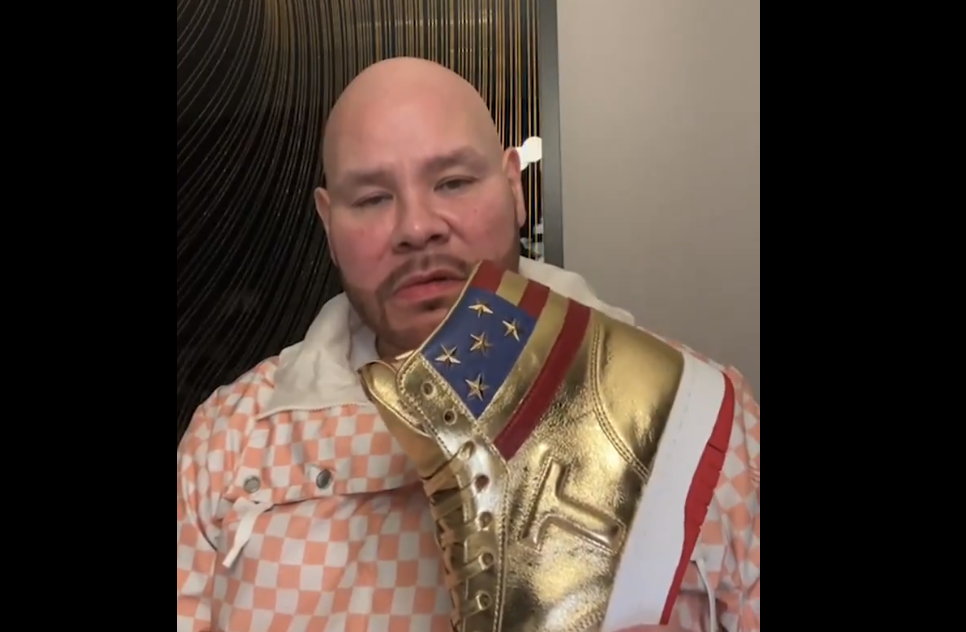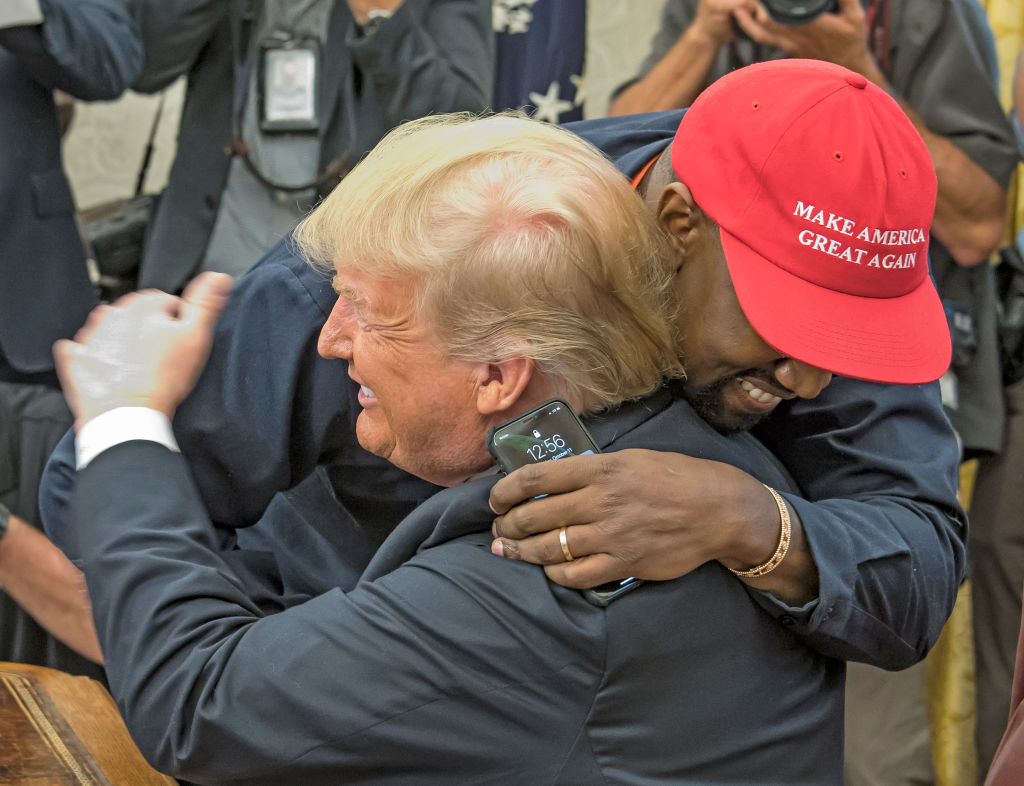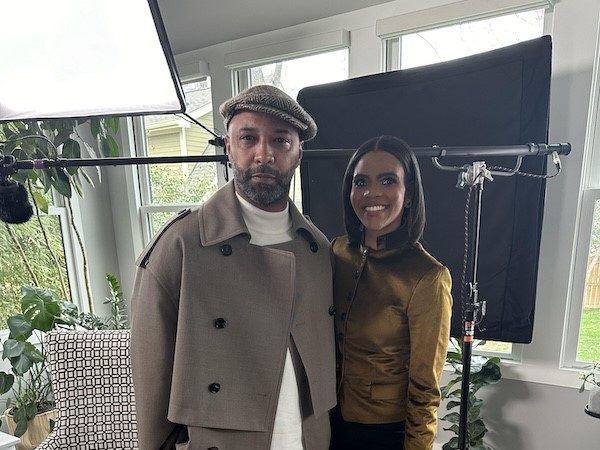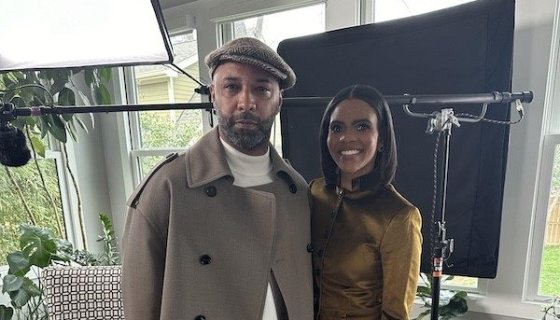
Source: @fatjoe / Instagram
“I never had dinner with the president!” – Ice Cube (“No Vaseline”)
O’Shea Jackson’s jab at Eric Wright on the scathing diss track aimed at his former N.W.A family carried significant weight in 1991. At the time, the president represented the power that was oppressive to the Hip-Hop community. A group like N.W.A didn’t participate in a lunch benefiting the Republican Senatorial inner circle, which was hosted by then-President George H. W. Bush. And the idea that Eazy-E did just that painted him out to be a traitor to the community.
We fought the power for change in our community, we didn’t fraternize with the power in an attempt to join their fraternity. And any individual in the Hip-Hop community who didn’t adhere to these unwritten laws was subject to being publicly tarred and feathered. No questions asked.
Fast forward to 2024 and, as The Notorious B.I.G. once said “Things Done Changed.”
The power that we were up against in the 80s and 90s has changed shape over the years. It’s a little more complicated to figure out who “The Power” is now when the economics and landscape have been modified, altered and remodeled. In some ways it has changed for the better but, as they always say—the more things change, the more they stay the same.
“Sharing our platforms and our audiences with individuals who have spent the majority of their careers in the spotlight disparaging the very communities we come from is a dangerous proposition.”
The idea of having dinner with the president shifted dramatically once Barack Obama took his seat in the Oval Office on January 20, 2009. But a Black man being head of state didn’t prevent unarmed Black men and women from being gunned down by those sworn to protect them in the years that followed. There are more prominent millionaires of color in America but the same structural issues that oppress minorities in the alleged “Land of the Free” are still present.
What happens when you begin sharing a tax bracket and oxygen with the power you once thought you were fighting against? It becomes really difficult to fight the power when you become the power and start to think, “Oh, this isn’t so bad after all.” And for a lot of these rappers, it’s reaching Laurence Fishburne levels of Deep Cover where those who think they are being undercover agents of chaos become swept up in the life and end up doing more harm than good.

Source: Consolidated News Pictures / Getty
Kanye West infamously wore the “Make America Great Again” hat in support of Donald Trump while recently Ice Cube galavanted through South Central LA with conservative and racist pundit Tucker Carlson. Obviously, there is a lot of nuance to be had when it comes to these interactions because they aren’t all bad, but it oftentimes takes on the guise of the Hip-Hop community being subservient to those who would have never allowed us in the esteemed country club several decades ago if we weren’t cleaning toilets and sweeping the debris from the crustless cucumber sandwiches. There is no tradeoff or challenge of ideologies. Instead, it’s empowering those who have spent their energy trying to destroy us by giving them our platform to espouse their overtly bigoted and immoral views.
We let our guard down just long enough for someone like Donald Trump to sneak into the back door of the White House in 2016 and empower fellow bigots and sexists to believe that their behavior isn’t just okay, it should be paraded.
And we’re dangerously close to it happening again.

Source: handout / Candace Owens
Just recently, Joe Budden was photographed with notorious self-hating conservative commentator Candace Owens for a future episode of The Joe Budden Podcast while Fat Joe shared a post on social media where he purchased Donald Trump’s new sneaker the Ayran Nation 12s (I kid, I think).
Sharing our platforms and our audiences with individuals who have spent the majority of their careers in the spotlight disparaging the very communities we come from is a dangerous proposition.
Pivoting back to the Deep Cover analogy mentioned earlier, in the film DEA Agent Russell Stevens Jr. (Fishburne) became a police officer after witnessing his drug-addicted, alcoholic father getting murdered while robbing a liquor store. The “power” he wanted to fight was against those who provided the poison that led to his father’s demise. After being tasked to go undercover as “John Hull” to infiltrate a drug cartel, Stevens Jr. finds himself in too deep, disillusioned and becomes enamored with the lifestyle afforded him. He eventually pulls himself out for a somewhat happy Hollywood ending but the damage to his integrity is already done.
We’re seeing quite a bit of this in the Hip-Hop community today as many of these rappers with high-profile platforms are far too eager to share it with the people who have routinely disparaged people who look like them and come from the same neighborhoods they grew up in. But the wine tastes different when you’re able to afford a decanter, and educating your community on why can become a chore. It’s easier to trade stories with people who can relate to your financial position while those matters of materialism tend to make them forget the circumstances they were once in and trying to remedy for the future.
What’s happening is that we are making it okay for these people to use us for their benefit. We’re in too deep to realize who is really in control of the narrative. What gets lost in Fat Joe being a sneaker collector who just had to have a pair of Trump’s sneakers is the fact that he said “I’m not a Trumper, I dislike Trump, I’m not voting for him—not now, not never.” Instead, Trump’s campaign will point to Fat Joe having a pair of these sneakers as a means of gaining the community’s support.
“Fat Joe has a pair, you should too,” will be the war cry (and was partially why it was trending on social media). And you can’t shake the stench of it.
Joe Budden expressing his admiration for Candace Owens’ work and then gifting her his audience gets us to put our guard down just enough as the well-documented political grifter attempts to wrangle more support from within our community. And while her commitment to the gimmick can be admired simply because of how dedicated she is to destroying Black people in front of a cheering group of right-wingers, the damage it does to have a Black woman relentlessly run down the community with half-truths and right-wing propaganda is beyond irreparable. Those who aren’t smart enough to sniff out the agenda will be swept up in it. And if Budden and his cohorts aren’t mentally equipped to challenge Owens—who is very intelligent and persuasive—then what exactly are we doing here? Providing a springboard for “The Power” to infiltrate our community?
There are ways to handle this kind of interaction to prevent our community from being used. New Orleans rapper Dee-1 appeared on Jason Whitlock’s show Fearless to discuss Christianity and their different perspectives of the Black community. Dee-1 didn’t have to share his stage and instead walked into the lion’s den to have a nuanced conversation. While giving any Black man who makes a career out of trashing other Black people the time of day is dangerous, Dee-1 wasn’t completely taken advantage of and was smart enough to avoid the traps Whitlock set.
But not everyone is Dee-1.
The trend of sharing our platforms with those who made a career out of hating us needs to end soon before we end up with another four years of Donald Trump giving power to the racist and xenophobic voices within our country while disguising it as “free speech.”
They don’t deserve us and we have to remember that while “The Power” will change shape and even befriend you, they are still the reason we fight.
